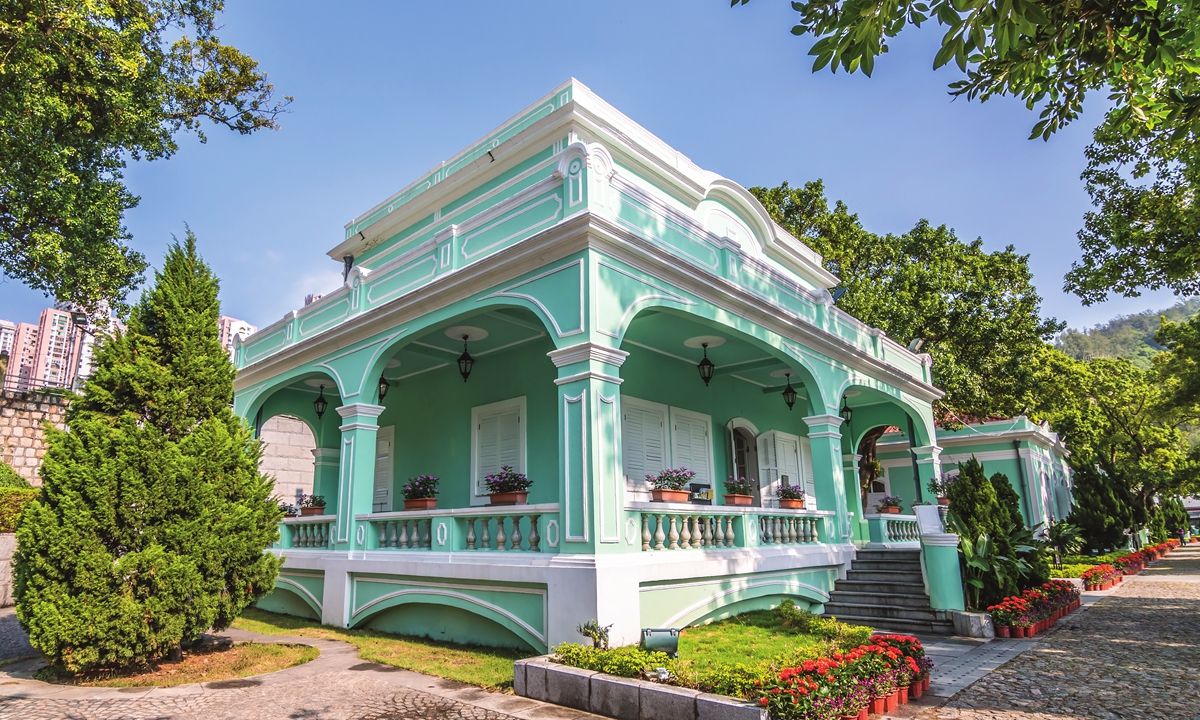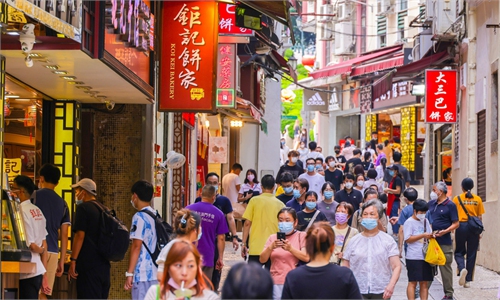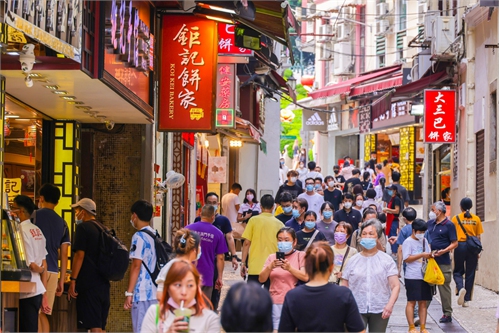Lusofonia Festival cheered in Macao brings China and Portugal closer
Carnival of friendship

The famous Portuguese-style Taipa Houses Museum in Macao Photo: IC
As a bridge linking China and Portuguese-speaking countries (PSCs), the Macao Special Administrative Region (SAR) has remained committed to promoting cultural exchanges between the two sides.
Over the weekend, the annual Lusofonia Festival drew local residents and tourists alike to the Taipa Houses Museum, a complex consisting of five Portuguese-style houses on Taipa Island, where they could enjoy food and traditional performances from PSCs.
Taking place simultaneously with the "carnival" of Portuguese appeal was a cultural festival featuring a series of activities such as the Chinese and Portuguese picture book fair, screenings of films in Chinese and Portuguese languages and wine tasting.
David Leung, a 4-year-old boy from Macao, listened attentively while pupils from the Macao Portuguese School sang chorus on an outdoor stage, giving his applause together with an enthusiastic crowd.
"The songs are beautiful," he told the Xinhua News Agency.
"I want to learn how to sing them."
Leong Wai-man, head of the Cultural Affairs Bureau of the Macao SAR government, said the festival is aimed at further playing Macao's role of a bridge linking China and PSCs and building the city into a place where Chinese culture dominates and multiple cultures coexist.
During the past week, the Office of the Commissioner of the Chinese Foreign Ministry in the Macao SAR joined hands with the Macao SAR government to organize an exchange plan for young people from China and PSCs who are studying in Macao.
Scores of college students from China and eight PSCs, including Portugal, Brazil and Angola, took part in the plan and a contest of short videos telling their stories about the city from the perspectives of cultural exchanges and integration, One Country, Two Systems practices, as well as Macao's role as a platform linking China and PSCs.
A student with the surname of Cheng was one of the prize winners. Born and raised in Macao, Cheng said she had been studying the Portuguese language and thinking about how she could leverage her strength to help promote friendship between Chinese- and Portuguese-speaking students.
"Macao is a city where the Chinese and Portuguese cultures meet," Cheng said.
"The building of the Guangdong-Hong Kong-Macao Greater Bay Area and the Guangdong-Macao in-depth cooperation zone in Hengqin, Zhuhai, will also bring opportunities to Macao."
Liu Xianfa, commissioner of China's Ministry of Foreign Affairs in the Macao SAR, said that Macao plays an irreplaceable role in promoting cultural exchanges and cooperation between China and PSCs, calling on young people from these countries to learn from each other and make joint contributions to the common development and prosperity of China and PSCs.
Ip Kuai-peng, vice rector of the City University of Macao, suggested that the Macao SAR government fully supports deepening cooperation with PSCs on higher education and personnel training, and encourages Macao's universities in carrying out academic exchanges with their counterparts in PSCs.
"Macao should also leverage its unique advantages and help tell the stories of China to the outside world," Ip added.
Xinhua


